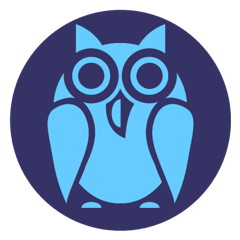Year 4
Welcome to Year 4
Summer Term 2024
Areas of study for Year 4*
Literacy
We will start off the Summer term by learning about the story of Beowulf and the children will then write their own adapted version of this Anglo-Saxon myth. The children will be given the opportunity to create their own mythical dragon and produce a non-chronological report to describe this creature. From fire-breathing beasts to ice entities, the children will be encouraged to let their creativity show when writing about their dragon’s diet, habitat and appearance. Throughout the term we will also be looking at Kennings poetry, where the children will invoke mystery and intrigue from the reader as they attempt to decide what is being described in their poetry. Linking to our history topic of the Anglo-Saxons, the children will be writing a persuasive advert and a fictional piece.
Numeracy
This term in numeracy, the children will be continuing with learning about decimals; including how to partition, compare and order them. The children will learn how to solve problems involving money and how we write amounts of money as decimals. The children will then look at telling the time using analogue and digital clocks, alongside understanding both the 12- and 24-hour clock times. Then, the children will be moving on to the topic of shape, where they will understand what the different types of angles are, properties of quadrilaterals and polygons and lines of symmetry. The children will learn how to draw and interpret line graphs, followed by comparing the data presented on them. Then, the children will look at co-ordinates, how to plot shapes on a grid and how to move them.
Reading
In guided reading this term, the children will be reading some shorter texts linked to our topic of the Anglo-Saxons. They will be further developing their reading comprehension with VIPERS style questions linked to our class text.
MFL
In French this term, the children will be learning language of the tea room. They will learn vocabulary and be able to use this in a French restaurant situation. They will learn how to order a range of food and drinks. They will also be recapping the terminology of ‘masculine’ and ‘feminine’.
PSHE/RSHE
In PSHE, the children will be learning about how to keep their bodies healthy. This will include learning about physical and mental wellbeing, symptoms of illnesses and healthy dental care.
In RSHE, the children will be learning about physical changes during puberty, the reproductive organs, physical changes, the menstrual cycle, emotional changes, and personal hygiene.
RE
Using a multi-faith approach, the children will learn about important books and sacred texts, the role of religious leaders for different faith groups. They will be able to compare and contrast these across a range of religions. They will explore the traits of good leadership and discuss these as a class.
PE
In PE, the children will develop and apply their jumping and landing and their seated balance, through focused skill development sessions, healthy competition, co-operative games and group challenges. Also, they will develop and apply their reaction and response and floor work balance, through focused skill development, competitions, co-operative games and group challenges.
Geography
Children will be learning about settlements, what early settlers needed, what makes a good settlement and how to use an atlas to identify settlements. Understanding land use, the children will appreciate how settlements are linked together. They will create a design for their own settlement, deciding why it would be a good site and what natural defences and resources would be available to them.
History
In history, we will be learning about the Anglo-Saxons and learn about their lived experiences. The children will make comparisons between their own lives and that of the Anglo Saxons; including what their clothes were like, how they were ruled and where they came from. The children will study a significant figure; Alfred the Great.
Science
In science, we will be learning about sound and what creates it. The children will understand how higher and lower pitch can be created and will make string telephones to investigate how sound travels. Furthermore, they will learn about living things and their habitats. They will be able to classify and group animals based on their characteristics and will explore their local environment to discover them.
Music
In music, the children will be inspired to create short sounds inspired by colours and shape. They will structure musical ideas into a composition, creating and reading graphic scores. They will understand that instruments can be combined to create a range of timbre and texture effects. Furthermore, they will develop their understanding of the inter-related dimensions of music.
The children will also watch a film and analyse its musical context. They will create ostinatos, layer rhythms, create and follow music scores.
Computing
In computing, the children will develop their computational thinking. They will be able to decompose, recognise pattern and understand abstraction and algorithms. The children will create a simple program which they will be able to apply logical reasoning to detecting and debugging errors.
Art, Design and Technology
Inspired by the Anglo Saxons and the work of Andy Warhol, the children will create a repeating pattern using a polystyrene tile, having learnt printing techniques. They will make a printing block after analysing and sketching from Anglo inspired animal motifs.
*If you require additional information relating to our school curriculum, please ask at the school office or the class teacher.
